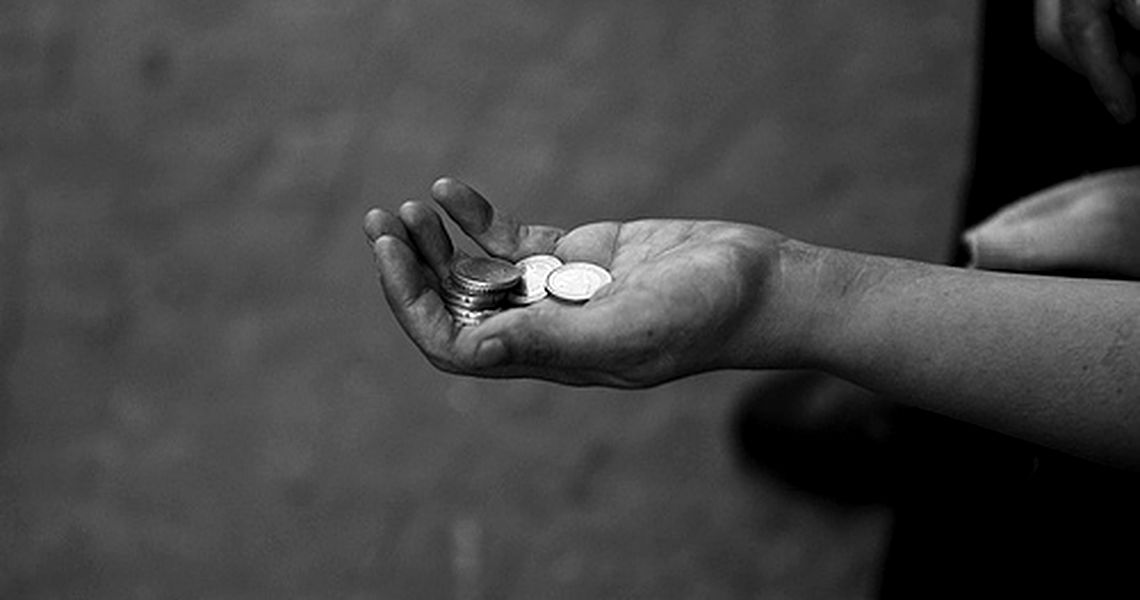By Nasir Aminu
Living in poverty is the default system of human nature, and the alternative approach requires perpetual struggle. Thus, anyone can manage to live in poverty, but to live out of poverty, one must learn.
Nigeria is rated among the low-income countries and has surpassed India in the extreme poverty rate ranking. Based on the Global Multidimensional Poverty Index (GMPI) measurement, 46 out of every 100 people live in extreme poverty.
- TEF trains 200,000 entrepreneurs
- Desert encroachment: 40m Nigerians in 15 northern states in poverty, conflict-FG
In his Democracy Day speech, President Buhari said his government had lifted 10.5 million people out of poverty. The superficial claim is deplorable. Experts heavily debated and debunked it with facts from the National Bureau of Statistics (NBS), the World Bank, GMPI, among many others. The Presidential spokesman, Femi Adesina, challenged how the experts arrived at their conclusions. Of course, one would expect him to defend this argument. After all, that is what he is paid to do. But what is worrying is that he did not provide evidence to support his claim but instead expects the public to trust what he says.
Measuring poverty can be tricky, especially using foreign exchange, like living below $1 per day. There have been debates on how the foreign exchange rate is used to measure the relative prices of goods and services. Goods that are not accounted for in international trade, for example, house rent or personal services like haircuts, are hard to value. Since the introduction of GMPI in 2010, the argument around measuring has been reduced because it uses deprivation of health, education and living standards as against monetary value. All three indices are evident in Nigeria. Still, the lack of education remains the highest contributor, especially in the northern part of the country. And since this is the region with the highest population, one can see where the problem lies.
There were no surprises when experts contradicted Buhari’s assertion. World Bank reported that seven million people drifted into poverty, and they provided evidence for their claims. It was a fact beyond doubt, given the current significant economic effects of the global pandemic. The global lender predicted that about 11 million Nigerians would be pushed into poverty by the end of 2022 due to the COVID-19 pandemic alone. These are worrying figures given the abundant resources Nigeria has in terms of human and capital. Thus, it is essential to begin thinking of addressing this issue as a matter of emergency.
In his speech, Buhari also mentioned that the government wants to lift 100 million people out of poverty over the next 10 years. This ambitious project is desirable but cannot be achieved by the Buhari administration, given they have only two years left. Therefore, the next democratic government needs to take this initiative. The question remains, can it be done?
One can argue that it will be difficult, but evidence has shown that some countries have significantly reduced poverty. For example, between 2006 and 2016, India was able to lift about 271 million out of poverty based on the GMPI measurement. This record shows the highest poverty reduction rate in the world. Contrast this with the situation in Nigeria.
Aside from the good intentions for the future project, existing evidence shows that the government is not on track to address the high poverty rate in the country. The government has persistently failed to sustain and deepen institutional reforms in several sectors of the economy that could improve the population’s living standards. These include the Central Bank’s policies on the foreign exchange rate and monetary policy, which is vital for the economy’s stability. As an import-dependent economy, the country requires a stable foreign exchange rate regime to ensure a stable environment for macroeconomic activities.
The recent World Bank report warned that a failure to sustain and deepen reforms would threaten macroeconomic sustainability and policy credibility. The consequences of lack of reforms are evident – persistent inflation, currency devaluation, and increasing debt profile. These issues are limiting the level of capital investments in the country, especially foreign direct investments. In all regards, a stable macroeconomy indicates the improvement of living standards, which leads to a lower poverty rate in the country.
Like many policies in Nigeria, the challenge for success remains with implementation. For example, the government had difficulties paying the 1,000 people picked from each of the 774 LGAs in 36 states under the Extended Special Public Works (ESPW) programme. The policy is plausible. High-income countries have a system that pays unemployed individuals to ensure no one is left behind on welfare. However, thousands of the selected participants are yet to receive the monthly amount they were promised. At the same time, some were paid for only one month, according to newspaper reports.
Assuming a certain percentage of the selected individuals were not paid, it will be easy to guess that the region with the highest population will be the most affected. The payment of unemployed individuals is helping improve the living standards of the people. If these challenges cannot be addressed, it will be difficult for the government to build on its policies. Policy sustainability can play a significant role in addressing existing gaps in the human capital needed to attract private investment in Nigeria. That is where education plays a vital role. For Nigeria to be lifted out of poverty with higher educational attainment, the country’s northern part must actively participate. Many studies have shown that for any increase in human capital and knowledge transmission, individual workers’ productivity is increased.
Of course, this is under the assumption that security challenges are addressed as lack of free movement across boundaries can negatively affect knowledge transmission.
Dr Aminu – is a Senior Lecturer in Economics at Cardiff Metropolitan University

 Join Daily Trust WhatsApp Community For Quick Access To News and Happenings Around You.
Join Daily Trust WhatsApp Community For Quick Access To News and Happenings Around You.

